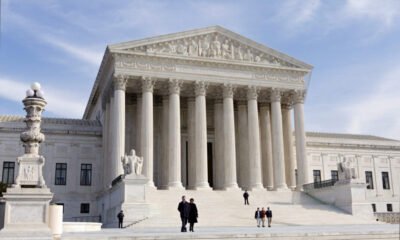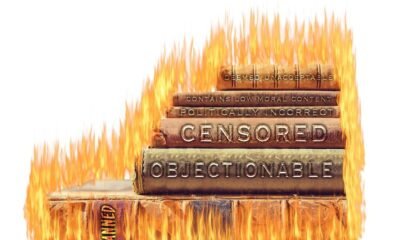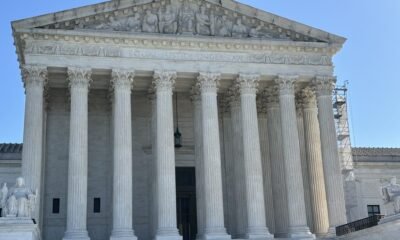Adrian Fontes
Fontes Seeks Court Action to Halt Prop 140 Removal from Ballot

Secretary of State Adrian Fontes is urging the Arizona Supreme Court to dismiss ongoing challenges against Proposition 140, which seeks to establish a nonpartisan primary system.
In recent filings, Fontes refrained from taking a definitive stance on whether the proposal should become law. Proposition 140 also includes provisions for introducing ranked-choice voting in the general election.
Fontes stated, “It is too late to litigate the initiative’s ballot qualifications, considering that ballots for over half of the state have already been printed.”
Despite the Supreme Court’s order to place Proposition 140 on the ballot, justices have instructed Maricopa County Superior Court Judge Frank Moskowitz to assess claims regarding the validity of signatures supporting the measure.
If Moskowitz finds the signatures insufficient, he is directed to prevent election officials from counting any votes for the proposition. Fontes and his legal team argue this approach is fundamentally flawed.
“No provision in the Arizona Constitution allows a measure to be placed on the ballot and subsequently invalidate votes cast by millions of voters,” they argued. They emphasized that both state law and constitutional provisions require counting all votes on a contest that is on the ballot.
Attorney Daniel Arellano, representing opponents of the measure, argues for ongoing hearings regarding the signature count. He claims the petition submitted by the Make Elections Fair committee lacks sufficient valid signatures for public voting.
Arellano believes halting litigation due to the printing of ballots would set a dangerous precedent. “What the committee seeks is essentially a free pass to evade scrutiny,” he contended.
Supporters of Proposition 140 submitted around 575,000 signatures, yet a random sample indicated that only 409,474 were valid. Opponents assert that eliminating duplicate signatures could bring the total below the necessary 383,923 for qualification.
Initially, Moskowitz dismissed the opponents’ claims but has been instructed by the Supreme Court to review evidence he had disregarded. He acknowledged the challenge in verifying all disputed signatures before ballot printing.
Fontes criticized the directive to exclude votes based on potential signature shortages. “Once ballots are printed, the decision is in the hands of the voters,” he remarked, asserting that courts should not override the electorate’s choice.
He further stated that if the proposition is approved and opponents disagree, they have the option to propose their own measure in a future election.
Fontes quoted the Arizona Constitution: “No power, civil or military, shall at any time interfere to prevent the free exercise of the right of suffrage.” He contrasted his position with Arellano’s assertion that allowing the measure on the ballot would encourage delays by initiative supporters.
Arellano countered by pointing out perceived inconsistencies in Fontes’ legal arguments. He referenced a separate case involving Michael Way, a legislative candidate, who allegedly voted in North Carolina in violation of residency rules.
The Supreme Court has yet to announce when it will rule on whether Moskowitz can continue evaluating the ballot signatures. Meanwhile, Travis Hunt, representing the Make Elections Fair committee, has called for a swift resolution.
“Each day that passes causes irreparable harm to the committee,” Hunt argued, noting that uncertainty surrounding the initiative hampers their efforts to campaign effectively.


















